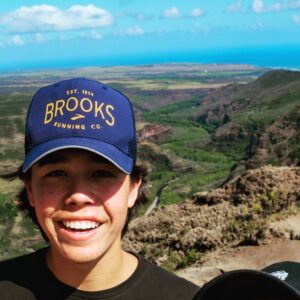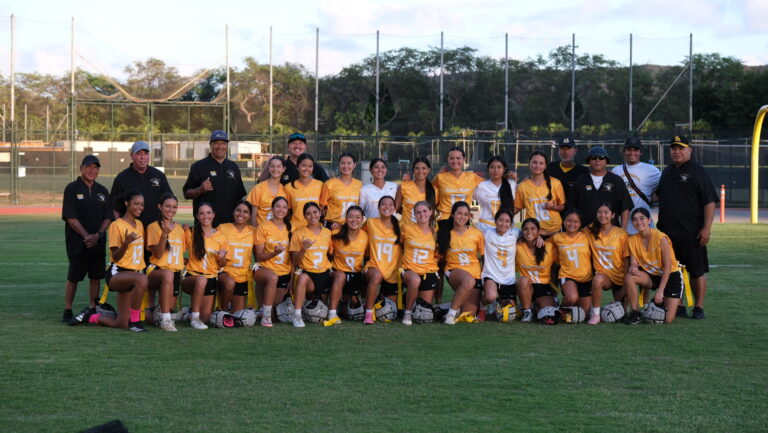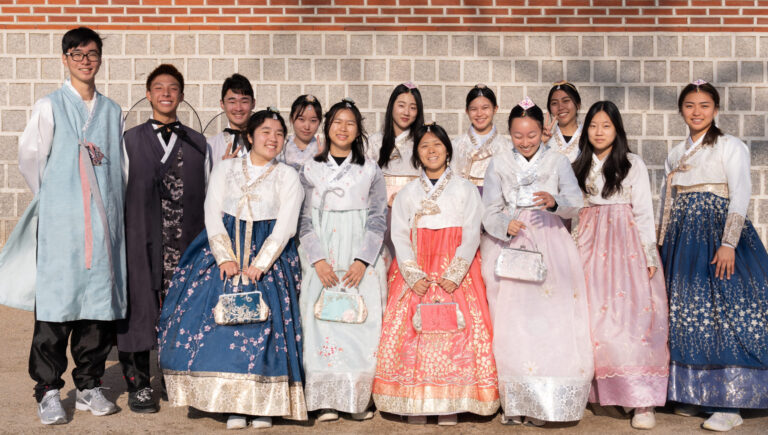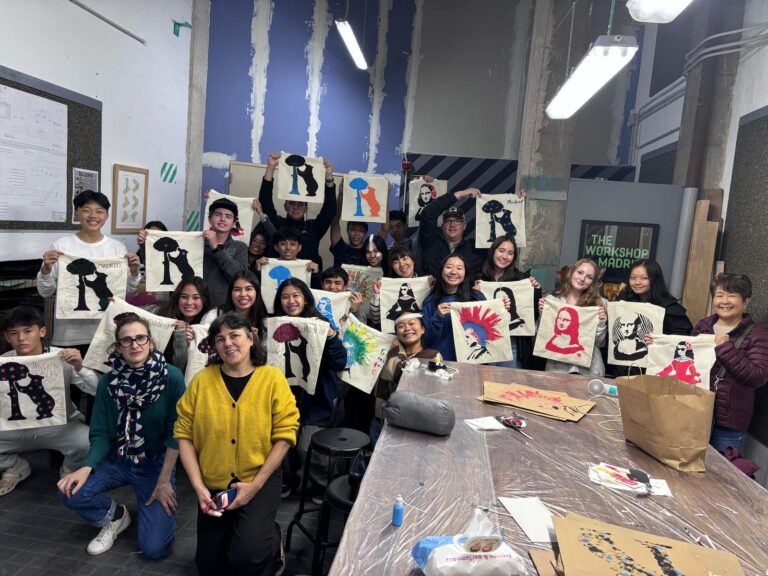Along with four other hikers, Justin Mayeshiro stood at the summit of the Stairway to Heaven, fully resigned to a wretched night, as they stared into the cloud-obscured landscape below them, a view often regarded as one of Hawaii’s best — though not visible at the moment.
After four hours of perilous hiking, they were seemingly robbed of their reward, as well as their tent, which had been blown off the mountain by a gust of wind, leaving them with just some canned food and a blanket. While it may have been a failed expedition in a number of ways, Mayeshiro still felt that the trek was well-worth the effort and risk.
To many, 2020 was a year of trying new things, and although not everyone decided to spend the night on top of a mountain, they have been challenged to find new ways to entertain themselves and grow. For Mayeshiro, a junior at HBA, this meant trying new things that some may view as unnecessarily risky. Online school gave him more free time, and tired of staying inside, he decided to start hiking. As someone who’s loved the outdoors since childhood, Mayeshiro decided to seek out advanced hikes on Oahu. Many of these were precarious, taking him on dirt paths on mountain ridges, with steep cliffs on either side, and sometimes he found himself free climbing up the mountain. However, his exploration has not been limited to physical challenges; with money saved up from part-time work, Mayeshiro purchased hundreds of dollars worth of photography equipment to take photos on his hikes. To him, while these physical and financial investments don’t produce tangible rewards, they are worth it because “every day is a new adventure and it’s like a story.” He believes his adventures bring more meaning into his life.
Like Mayeshiro, students and faculty at HBA have taken a similar path this year, taking up baking, working out, gardening, or spending more time with family. Although it may not seem like it at first glance, these all contain risk, whether physical, mental or emotional.
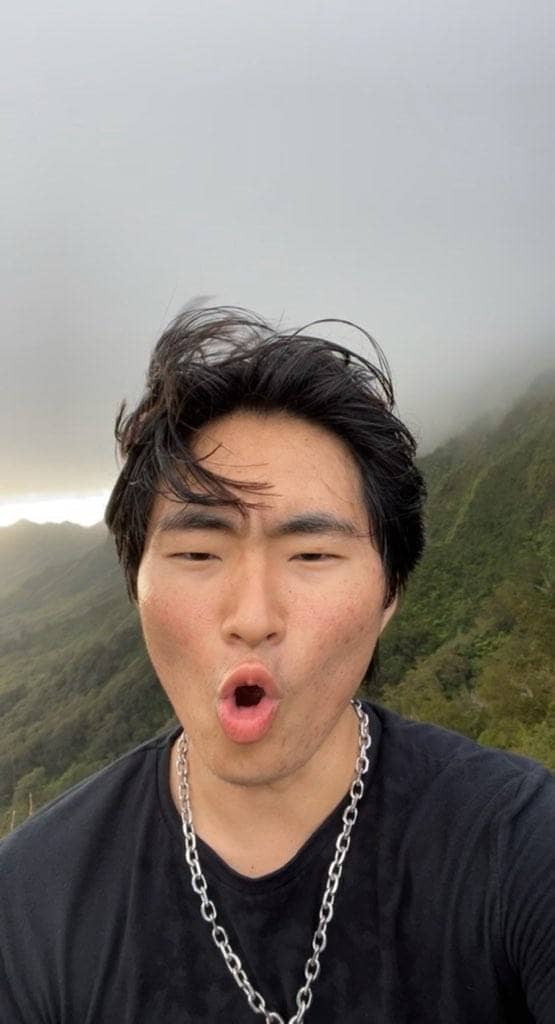
Junior Justin Mayeshiro takes a selfie after a four-hour hike up the Moanalua Ridge to the top of the Stairway to Heaven. Photograph courtesy of Mayeshiro.
For senior Ethan Aimoto, a varsity runner, the pandemic turned his regular trips to the gym into a risky venture. On Oahu, there have been at least two recent Covid-19 clusters linked to gym groups. However, Aimoto feels strongly that this was a measured risk and that the threat of the pandemic did not outweigh his fitness and mental wellbeing. As a result, he has been able to gain a lot of strength, achieving his goal of doing five reps of 225lb squats, and finding passion in weightlifting.
According to Spanish teacher Gray Spainhour, who considers himself an avid outdoorsman and spends many of his weekends surfing, risk-taking is unavoidable. “You cannot go through life without taking risks,” he stated. Prior to moving to Hawaii, Spainhour has traveled extensively through Latin America, hiked the Appalachian trail—an adventure he considers one of his best, competed across the mainland in BMX biking, and, of course, gone on numerous surfing trips. He greatly values these adventures and believes that they have contributed to the formation of his character. His travels to South America were especially eye-opening as his experience as a stranger in a foreign land helped him to immerse himself in the Spanish culture. He also said that living as a part of the minority caused him to look toward God. “I feel like I was able to develop my relationship with God during that time because I was removed from everything that was normal and placed in a new country with a new language, a new people, and a new culture,” he explained.

Spanish teacher Gray Spainhour arrives at the summit of Mount Katahdin in Maine. To get here, Spainhour hiked the Appalachian Trail, which traverses 14 states from Georgia to Maine, covering more than 2000 miles.
Recently, Spainhour took a risk that many would consider to be one of the biggest commitments of his life. “I did get married, so that’s my new life adventure. I reconnected with an old college friend over Christmas of 2019.” He said that he suggested she come out to Hawaii during spring break, but that was around the time Governor Ige started the lockdown. As a result, she stayed for a few months. “We hit it off and tied the knot pretty quick,” Spainhour shared. Joelle, his wife, returned home for around a month to prepare to move here, and they were married in their front yard in June. Although 2020 was full of difficulty for many, for Spainhour, it’s been a blessing, something he’s been reminded of as he surfs with his wife a number of times each week.
Surfing is also on freshman Hannah Cheng’s list of risky ventures, even though she hasn’t yet taken the plunge. However, she doesn’t want to shy away from it because she feels it could be something that she could be passionate about. Her aversion to “missing out on enjoying life” drives her to continue to get out of her comfort zone and try new things, because she values the chance of gaining something from those experiences more than the possibility of failure. Senior Johanna Seng provides insight into this idea: “It’s your basic conundrum of costs versus benefits… when the costs outweigh the benefits or potential benefits, you shouldn’t take that risk but, of course, different people count up and measure these things differently.” In 2019 Seng made a hard decision about running with the cross country team for the ILH and State championships despite her ongoing hip injury and the knowledge that professional opinion was not in her favor. She risked worsening this injury with the possibility of having to completely halt training for months, but chose to compete nevertheless. The team ended up winning both championships, but unfortunately, Seng was forced to stop running for three months as a consequence, leaving her “quite crestfallen with her physical condition.” Still, Seng maintains, “It was worth it. I don’t think I would have forgiven myself if I hadn’t run and then my team had lost, which would fall under the cost column.”
Sophomore Elisha Lum takes a more cautious approach, especially when it comes to physical challenges. “You only get one body, and if you mess your body up or mess your mind up then you can’t go back.” Aimoto points out that if a risk can negatively affect others without their consent, the right decision is always not to take the chance.
For students, parents’ opinions remain a big factor in their decision-making. Junior Kisa Tamai said her parents advised her not to be too ambitious with AP courses this year so as not to overwhelm herself. Others, such as Lum, are taught to think through their decisions well and largely trusted to make their own choices. Counselor Tara Gruspe, who has two young adult children, made sure to encourage her children to pursue their passions. They both took up activities like skateboarding and surfing, both of which are risky sports. In addition, her son decided he wanted to pursue a full-time career as a visual artist, a path that is often financially unstable and challenging. However, she and her husband supported his decision as they saw that it was something he was very passionate about.
Yet, with age comes a more cautious outlook on life and physical limitations. In a study of risk taking behavior over time conducted by the Max Planck Institute for Human Development, researchers found that one’s inclination to take risks changes the most during the early and late stages of life, encouraged by landmarks like starting a family or retiring. Similarly Gruspe observed that she used to take bigger risks before she had children, as she was a police officer for a short time before she was married, a decision that her mother was against, especially considering Gruspe’s small physical stature. Gruspe discovered that she was not meant for the job, but continued to take other physical risks like surfing. Nonetheless, when her children were young, Gruspe explained that she became much more circumspect about the risks she took. For example, she found roller coasters or skydiving a little too risky. “I don’t need to have those thrills or take those risks because I have these kids to take care of,” she said. However, as her children got older, she allowed herself to become a little less cautious. While she is still not likely to go skydiving, she said, “I think I’m adventurous in what I’m doing now and exploring new things in this season of my life.”

Guidance Counselor Tara Gruspe when she was a police officer. Photograph courtesy of Gruspe.
Spainhour and Gruspe both point out that their Christian faith challenges them to live with an adventurous mindset. Spainhour explained, “God wants to take you on a life of adventure. As a Christian we don’t necessarily get to plan our own lives out. We take orders from an invisible, loving, gracious God, and his Word says that he has good plans for us. But he doesn’t reveal his full plan to us at once, so I feel like that’s the adventure part. He leads us along and reveals a little bit more and a little bit more.”
To Mayeshiro, the adventures he’s experienced through hikes helps him discover purpose and meaning in his life, not to mention provide a certain thrill that spices up his life. That belief is what drives Mayeshiro in his excursions and on his adventure on the Stairway to Heaven (via Moanalua Ridge, since the stairway route is officially off-limits.) To him, that adventure was no disaster. He had an experience that few have had , spending the night in the abandoned radio station at the summit, eating tuna straight out of the can. “It tasted absolutely disgusting but since I ate it at the top of a mountain above the clouds, it’ll always be my sky tuna.” Mayeshiro shared that the secret to turning a bad or unexpected circumstance around is to do it with your friends, and the same goes for any adventure. The memories that come from adventures shared with good company are always more valuable and meaningful than one without.
Even though risks are unavoidable, one always has a choice. Providing one last piece of advice for others, Aimoto confides that, in his experience, risking one’s contentment should be off limits. “Don’t call for more. I find that every time I get greedy and go for more, it always ends up backfiring and I lose more than I originally had. So in that sense, don’t take risks if you’re satisfied with your situation.”


